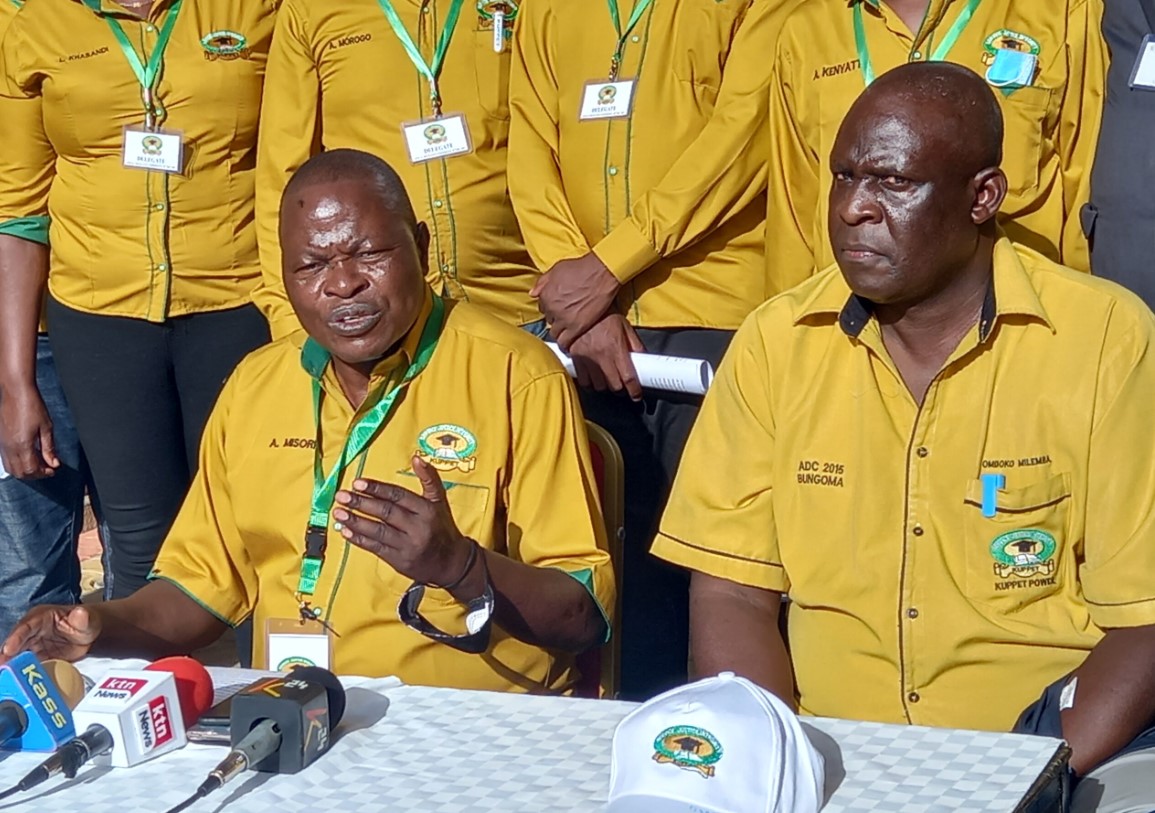
The proposal centers on extending the retirement age of the Secretary General from 60 to 65 years. This took place during the 26th Annual Delegates Conference in Vihiga County and sparked intense debate among delegates.
Delegates expressed opposing views about the proposed amendment, turning the conference into a passionate and sometimes contentious exchange. Observers, particularly Junior School (JS) representatives, strongly criticized the process.
They accused union leaders of overlooking proper procedural norms, with some asserting, “These amendments aren’t following proper processes.”
The primary concern raised was the absence of broad consultation across KUPPET’s 47 branches. Delegates argued that significant constitutional changes such as this should involve extensive debate at all levels.
One individual noted, “The proposals being discussed here haven’t been debated in all branches nationwide.” This raised questions about the union’s commitment to fairness and transparency.
The issue of the Secretary General’s retirement age is set against a backdrop of recent internal disputes within KUPPET. The union has faced governance challenges, including the removal of Assistant National Treasurer Ronald Tonui in a contentious process.
Tonui later contested his dismissal in court, further deepening divisions within the union.
For many members, these conflicts underscore broader concerns about KUPPET’s governance practices and the transparency of its leadership decisions.
KUPPET Secretary General Akelo Misori stood firm in defending the proposed amendments, presenting them as measures to foster inclusivity within the union’s leadership.
Misori criticized the role of JS observers in the debate, stating, “If you’re an observer, you don’t have the express right to speak, contribute, or even vote.”
Misori emphasized the intention behind the changes, which include increasing diversity and representation, particularly for women and people with disabilities.
While his supporters applauded these proposals as progressive, others remained skeptical about the process, questioning whether the amendments truly align with the union’s promises of openness and democratic principles.
In an attempt to resolve the widening rift, Misori has proposed a consultative meeting involving union leadership and JS representatives.
He hopes this dialogue will address their concerns constructively, though it remains uncertain whether it will lead to meaningful resolution or merely postpone deeper conflicts.
KUPPET now faces critical questions about its future. Beyond this specific proposal, members are calling for a more transparent and inclusive decision-making process.
It is clear that the union must address these challenges head-on if it hopes to heal internal divisions and regain trust within its ranks.
The unfolding debate demonstrates that KUPPET is at a crossroads, where the values of fairness, governance, and inclusivity will play a defining role in its future.
Whether unity can be achieved depends largely on how its leadership navigates the current challenges. The road ahead is uncertain, but one thing is evident: this conversation is far from over.








